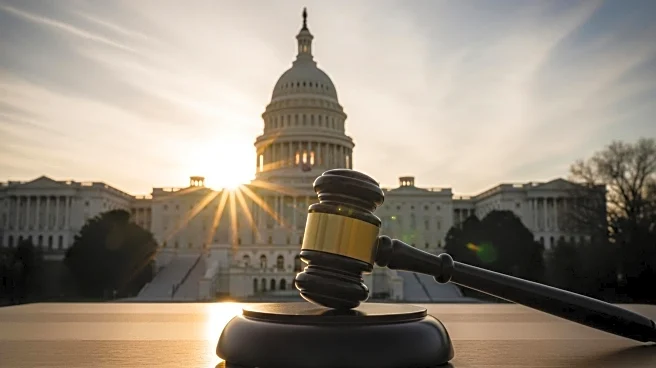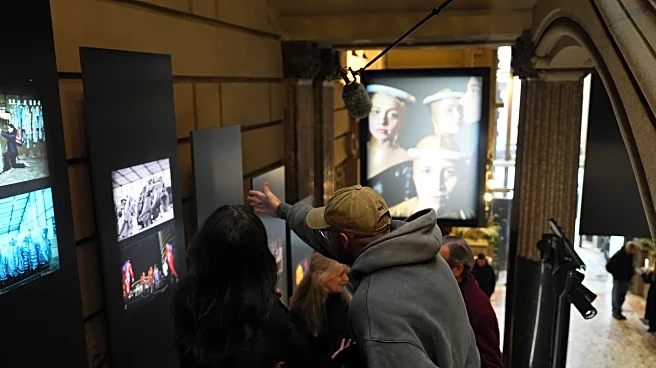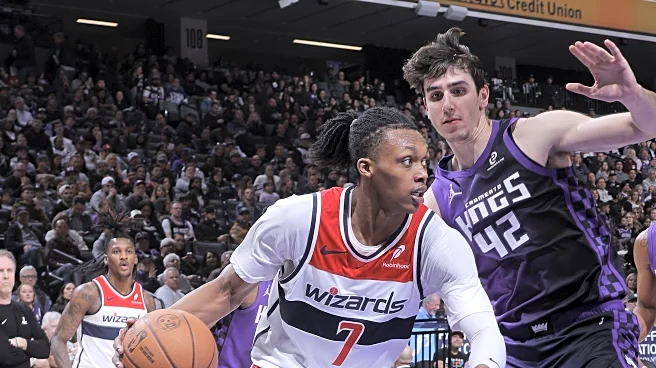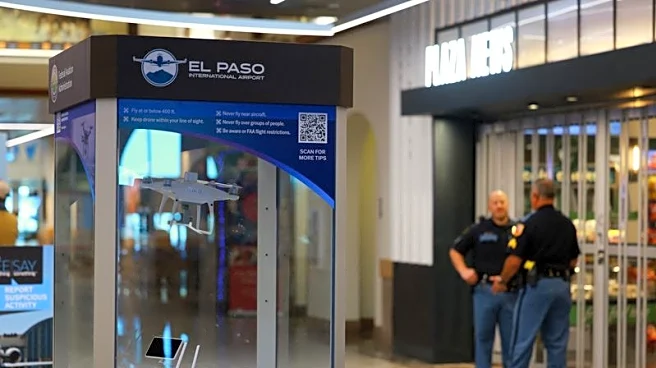What's Happening?
D.C. Council member Robert C. White Jr. has declared his candidacy for the congressional seat currently held by Eleanor Holmes Norton. White, who has served as a council member since 2016, is entering the race amid growing calls for Norton, who has held the seat since 1991, to retire. White's announcement comes as the District faces significant challenges to its autonomy, including a $1 billion budget cut and increased federal control over local matters. White, who previously worked as legislative counsel in Norton's office, aims to address these issues by advocating for D.C.'s autonomy at the national level.
Why It's Important?
The race for Eleanor Holmes Norton's congressional seat is significant due to the ongoing challenges to D.C.'s autonomy. With federal interventions increasing, the role of D.C.'s representative in Congress becomes crucial in advocating for the city's interests. White's candidacy highlights the urgency of addressing these issues, as he plans to leverage his experience and connections to organize support for D.C.'s cause. The outcome of this race could impact the city's ability to govern itself and maintain its limited self-government, which has been under threat from recent legislative actions.
What's Next?
As the race for Norton's seat unfolds, White will focus on building a coalition of support within Congress and national organizations to advocate for D.C.'s autonomy. His campaign will likely emphasize the importance of local governance and the need to resist federal encroachments. The election will also see other candidates, including D.C. State Board of Education President Jacque Patterson and former Democratic National Committee official Kinney Zalesne, vying for the seat. The political landscape in D.C. may shift depending on the outcome, influencing future legislative actions affecting the city.
Beyond the Headlines
White's decision to run for Congress instead of mayor reflects the high stakes involved in protecting D.C.'s autonomy. His campaign may bring attention to broader issues of federal control over local jurisdictions, potentially sparking discussions on the balance of power between local and federal governments. The race could also influence public opinion on the effectiveness of D.C.'s current representation and the need for fresh leadership to navigate these challenges.











